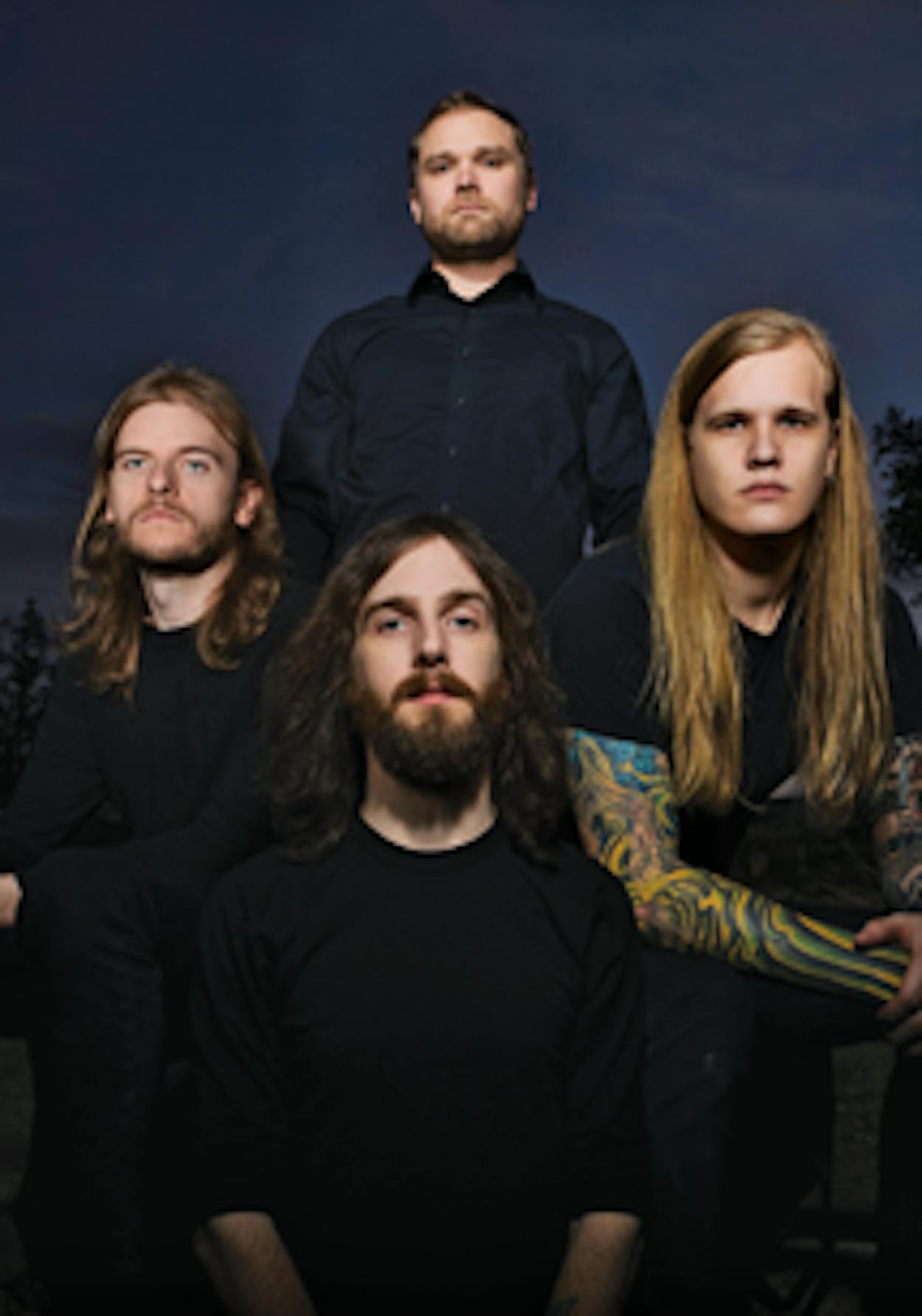Austin heavy metal band the Sword’s 2006 debut earned the group a coveted spot touring the world with Metallica and repeated appearances on the popular video game Guitar Hero, impressive feats for a band signed to an independent label. The Sword’s third record, Warp Riders (Kemado), is its first full-blown science fiction concept album, complete with song titles like “Chronomancer I: Hubris” and “(The Night the Sky Cried) Tears of Fire.” Cronise (front, center) is the band’s 34-year-old singer-guitarist and main songwriter.
How did you get started playing music?
I heard Led Zeppelin and thought I should play guitar. It seems to be a typical story: You hear something and think, “I need to do that,” and you figure out how to play “Smoke on the Water” and it just goes from there.
I’m never really sure how to define “heavy metal,” particularly in this day and age.
For me heavy metal is the musical equivalent of science fiction or fantasy. It’s also akin to classical music in that it’s very epic and powerful and stirring. To me, a riff and drumbeat can have as much power to create an image in your mind as a lyric.
The Sword has frequently been compared to metal pioneers Black Sabbath. Does the comparison flatter you or bother you?
Oh, it totally flatters us. We don’t necessarily think it’s always true, though. A lot of times people hear certain things and say, ‘Oh, this band sounds like Black Sabbath,’ and they don’t really listen to the other 90 percent of it. But you can’t really complain about being compared to one of the greatest bands of all time.
One thing that defines contemporary heavy metal is those exaggerated, screeching voices. But you don’t really do that.
I like some of those bands, but I think that kind of thing is a little overdone. I don’t have a crazy vocal range, and I’m not angry enough to be screaming or growling all the time. I prefer to just sing.
Do you take metal seriously or do you approach it with a sense of irony?
I take it as seriously as I take anything. A lot of heavy metal bands these days are a little tongue-in-cheek, but we were never supposed to be that at all. It’s not a joke. It’s not supposed to make you laugh. If it does, that’s fine, but that’s not our intent.
Is there a circuit that metal bands stick to or do you play the same venues as other rock bands?
In the nineties, different kinds of bands played together all the time. You would have rap groups playing with metal bands, playing with dance bands. But now people want to go to a show and listen to five bands that sound the same. I think a lot of that has to do with the Internet and the fall of MTV. There’s no centralized source where people go to find out about different kinds of new music. On the Internet, you go to what your specific tastes guide you to.
What was touring with Metallica like?
It was crazy. You’re playing in these big arenas—sports arenas, basketball arenas, hockey arenas—places that all look the same backstage, where there’s a hundred people running around.
Warp Riders is different from your first two records in that it’s a concept album. It’s about this archer named Ereth who lives on the planet Acheron and winds up in the middle of a battle between good and evil.
I just wanted to have something to write songs about, and I figured, why not come up with a story?
You cite an impressive number of influences on this record: Queensrÿche’s concept album Operation: Mindcrime, the French animator René Lalou, Carlos Castaneda . . .
I wanted it to be part science fiction and part fantasy, with elements of westerns, surrealistic elements, and mythological elements. Everything that kind of makes up the Sword universe as we see it.







